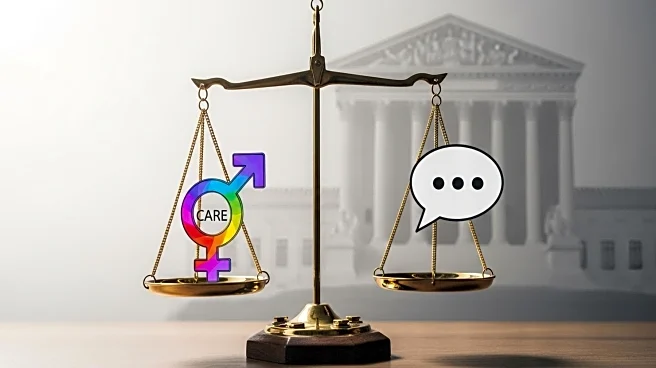What's Happening?
The U.S. Supreme Court is reviewing a Colorado law that prohibits counselors from engaging in conversations with minors about gender dysphoria unless it aligns with state-approved outcomes, such as encouraging gender transition. The case, represented by the Alliance Defending Freedom, argues that this law infringes on free speech rights by limiting the ability of counselors to help minors who wish to become comfortable with their biological sex. The law has been criticized for removing voluntary counseling options and pushing children towards gender transition, despite research indicating that many children naturally resolve gender dysphoria without medical intervention.
Why It's Important?
This case is significant as it addresses the balance between state regulations and First Amendment rights, particularly in the context of counseling minors. The outcome could set a precedent for how states can regulate conversations between counselors and clients, potentially impacting similar laws in other states. A ruling in favor of free speech could allow for more diverse counseling approaches, while a decision upholding the law might reinforce state control over therapeutic practices. The case also highlights broader societal debates about gender identity, children's rights, and parental involvement in medical decisions.
What's Next?
The Supreme Court's decision will be closely watched, as it could influence future legislation and legal challenges related to free speech and gender identity counseling. Stakeholders, including civil rights organizations, medical professionals, and advocacy groups, are likely to respond based on the ruling's implications for counseling practices and children's rights. The decision may also prompt legislative reviews in states with similar laws, potentially leading to changes in how gender dysphoria is addressed in minors.









